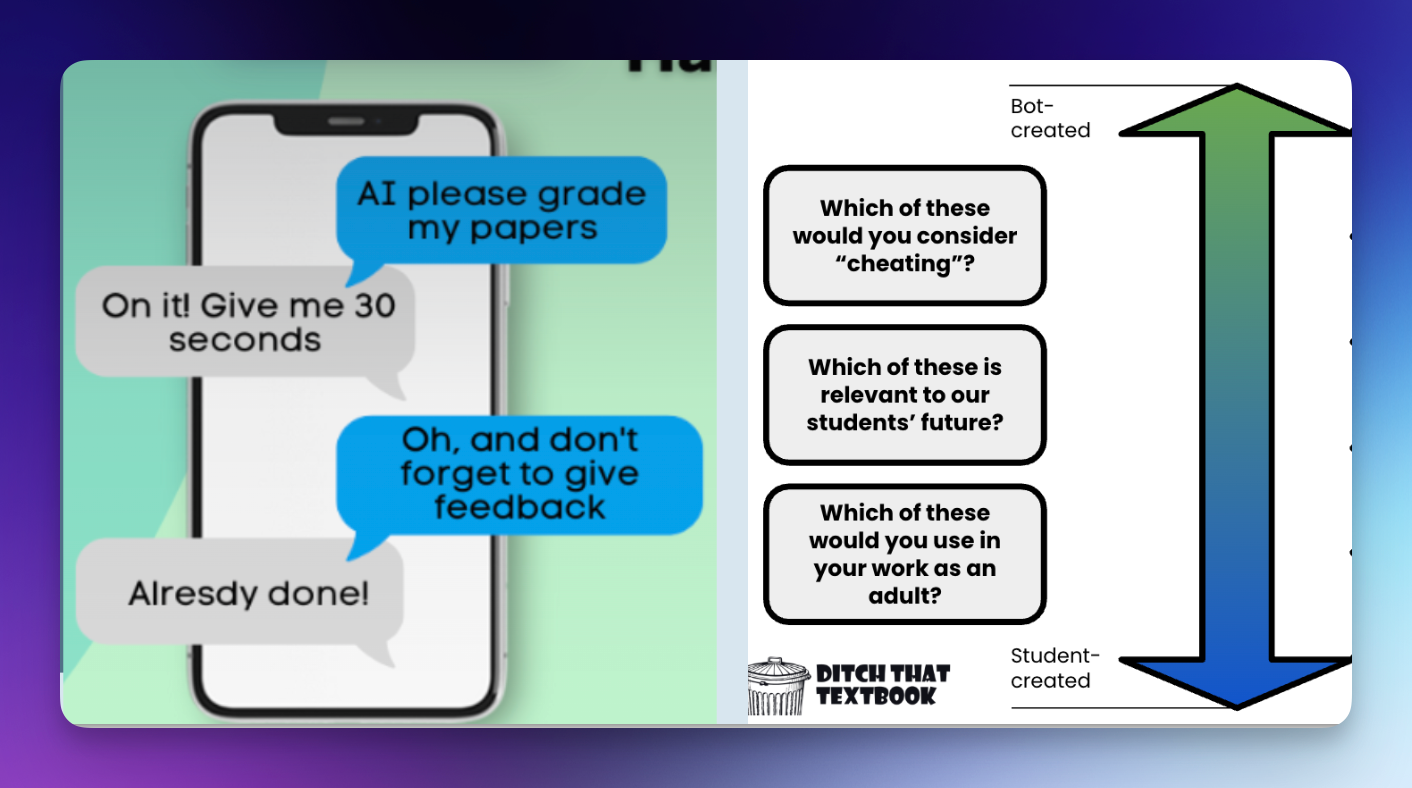Subscribe
In February 2023, a brief national scandal erupted: Several students at a high school in Florida were accused of using a tool called “ChatGPT” to write their essays. The tool was four months old at the time, and it already seemed like a technology that, at the very least, students would try to cheat with. That scandal now feels incredibly quaint.
Immediately after that story broke, I filed 60 public records requests with state departments of education and a few major local school districts to learn more about how—and if—they were training teachers to think about ChatGPT and generative AI. Over the last few years, I have gotten back thousands of pages of documents from all over the country that show, at least in the early days, a total crapshoot: Some states claimed that they had not thought about ChatGPT at all, while other state departments of education brought in consulting firms to give trainings to teachers and principals about how to use ChatGPT in the classroom. Some of the trainings were given by explicitly pro-AI organizations and authors, and organizations backed by tech companies. The documents, taken in their totality, show that American public schools were wildly unprepared for students’ widespread adoption of ChatGPT, which has since become one of the biggest struggles in American education.
Last week, New York magazine ran an article called “Everyone Is Cheating Their Way Through College,” which is full of anecdotes about how generative AI and ChatGPT in particular has become ubiquitous in the education system, and how some students are using it to do essentially all of their work for them. This is creating a class of students who are “functionally illiterate,” one expert told New York. In the years since generative AI was introduced, we’ve written endlessly about how companies, spammers, and some workers have become completely reliant on AI to do basic tasks for them. Society as a whole has not done a very good job of resisting generative AI because big tech companies have become insistent on shoving it down our throats, and so it is asking a lot for an underfunded and overtaxed public school system to police its use.
The documents I obtained are a snapshot in time: They are from the first few months after ChatGPT was released in November 2022. AI and ChatGPT in particular have obviously escaped containment and it’s not clear that anything schools did would have prevented AI from radically changing education. At the time I filed these public records requests, it was possible to capture everything being said about ChatGPT by school districts; now, its use is so commonplace that doing this would be impossible because my request would encompass so many documents it would be considered “overbroad” by any public records officer. All documents and emails referenced in this article are from January, February, or March 2023, though in some cases it took years for the public records officers to actually send me the documents.
And yet, the documents we obtained showed that, in the early days of ChatGPT, some state and local school districts brought in pro-AI consultants to give presentations that largely encouraged teachers to use generative AI in their classrooms. Each of these presentations noted potential “challenges” with the technology but none of them anticipated anything as extreme as what is described in the New York magazine article or as troublesome as what I have heard anecdotally from my friends who are teachers, who say that some students rely almost entirely on ChatGPT to make it through school.

